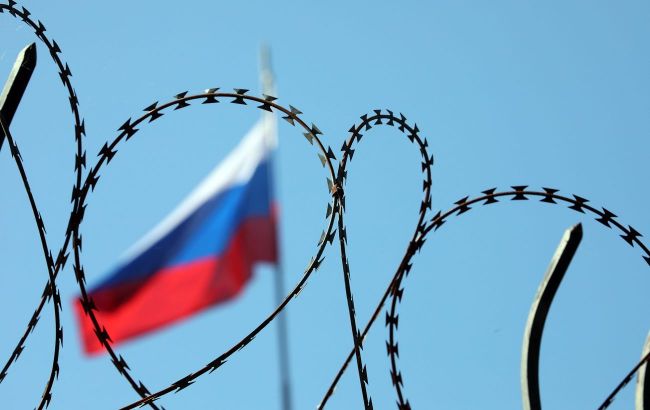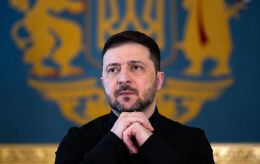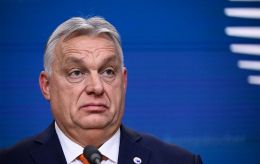EU wants to release part of frozen $280 billion from Russia - Bloomberg
 France and Germany oppose full compensation (photo: Getty Images)
France and Germany oppose full compensation (photo: Getty Images)
The European Union is exploring ways to retrieve frozen $280 billion of the Central Bank of Russia. The reason is that the bloc is trying to provide financial and military support to Ukraine amid signs that the United States may cut its aid, Bloomberg reports.
According to people familiar with the talks, EU officials are discussing how the assets could be used as collateral for a planned International Claims Commission to determine the amount of compensation due to Ukraine. The assets could be seized if Moscow refuses to pay the damages.
The interlocutors clarify that the amount of confiscated funds will be credited as part of Russia's payments for damages caused to Ukraine as part of a possible peace agreement.
Valdis Dombrovskis and Maria Luís Albuquerque, heads of the EU's Ministry of Economy and Financial Services, said that the bloc should explore all possible options to help Ukraine, including the confiscation of the Russian Central Bank's assets.
Another option under discussion is for the EU to oblige member states to confiscate sovereign assets as compensation for the destruction of Ukraine's energy infrastructure. They are examining whether the International Criminal Court's ruling on this issue and the brutality of the attacks would justify action under EU criminal law.
At the same time, proposals for a full confiscation of assets have been rejected by member states, including Germany and France. In particular, because of the legal and economic consequences this could have, as well as how such actions could affect the international role of the euro.
The newspaper goes on to say that the EU's diplomatic service and some member states have studied whether court decisions would be needed as a legal basis for seizing frozen assets or whether a calculation of damages would suffice. The European Central Bank has expressed concern about the idea.
The proposals are complicated by the fact that the G7 has already used the profits from frozen Russian assets to finance a $50 billion loan to Ukraine.
The European Commission reportedly told EU ambassadors this week that negotiations on the creation of an International Claims Commission will begin on March 24. It also added that the new organization will be discussed at a meeting of foreign ministers on Monday, February 24.
The new commission will be tasked with assessing damage claims and determining the exact amount to be paid.
"There can be no justice without compensation. Russia must be held accountable for its aggression, and it must pay," European Commission President Ursula von der Leyen said this month.
Bloomberg specifies that the EU, G7 countries, and Australia have frozen about $280 billion of the Russian central bank's assets in the form of securities and cash, mainly through the Belgian clearing house Euroclear. The U.S. Treasury estimates that sanctions imposed on prominent Russian individuals have frozen another $58 billion in assets, including homes, yachts, and private jets.
In late December, Ukraine's Foreign Minister Andrii Sybiha called on partners to move from freezing Russian assets to confiscating them. He noted that the funds should be used to support Ukraine.

